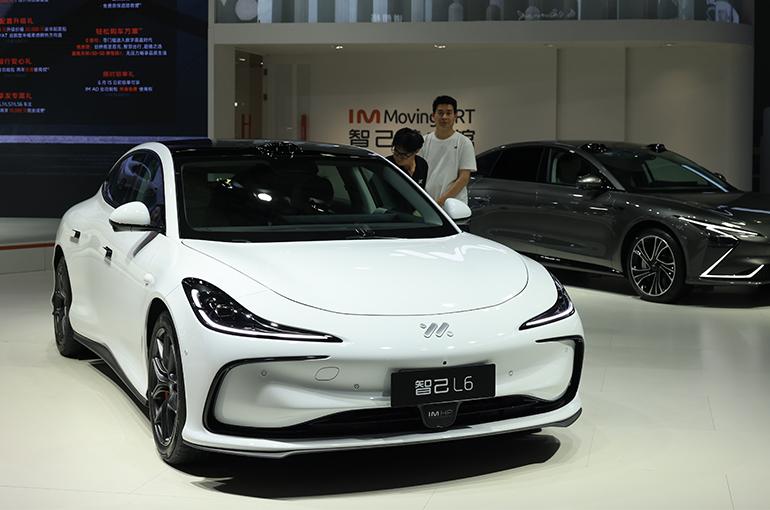 SAIC's Shares Fall After Chinese Carmaker Is Said to Launch New EV Brand With Huawei
SAIC's Shares Fall After Chinese Carmaker Is Said to Launch New EV Brand With Huawei(Yicai) Feb. 12 -- Shares of SAIC Motor dropped after a media report claimed China's largest automaker will team up with Huawei Technologies to jointly develop a new electric vehicle brand, tentatively named Shangjie in Chinese.
SAIC [SHA: 600104] was trading down 2.6 percent at CNY18.51 (USD2.53) as of 11 a.m. in Shanghai today, after earlier plunging as much as 5.2 percent. The Shanghai Composite Index rose 0.2 percent.
Shangjie, the fifth brand under Huawei's Harmony Intelligent Mobility Alliance business, will target younger consumers, with prices likely ranging from CNY170,000 to CNY250,000 (USD23,660 to USD34,790), 36Kr reported yesterday, citing several sources.
The first model under Shangjie, expected to be released in the fourth quarter of this year, will be based on an existing model under SAIC's Rising Auto brand, the 36Kr sources noted. "The exterior design will remain largely unchanged, with the main focus being integrating Huawei's electrical architecture and intelligent technologies."
The collaboration is moving full sail ahead, as HIMA is deploying personnel for business coordination, and SAIC has already assembled a team of over 100 people for the project, the sources added.
When asked about the news by Xinhua Finance, Huawei said that only official announcements should be considered authoritative.
SAIC's only previous cooperation with Huawei was over the supply of smart components for the Shanghai-based carmaker's Roewe Feifan R7 EV model. Roewe merged into Rising Auto late last year.
Allowing suppliers to provide an overall solution for SAIC would be like "selling its soul," according to former Chairman Chen Hong. But Chen retired last July, and reports of talks on a possible tie-up between SAIC and Huawei started appearing in November.
SAIC's reconsideration may stem from Huawei's board partnerships with other automakers, which have led to significant sales growth, which contrasts with SAIC's own sharp decline in performance last year.
SAIC's sales plunged nearly 21 percent to just over 4.01 million vehicles in 2024 from the year before, far under its annual target of 5.45 million. However, sales rose 7.9 percent to 264,200 units in January from a year earlier.
Shenzhen-based Huawei does not produce its own vehicles but works with carmakers in three ways: as vertical parts supplier, intelligent systems provider through the Huawei Inside partnership model, and full-set solutions provider via HIMA, which has been the most successful approach to date.
So far, HIMA has launched four vehicle brands: Aito with Seres Group, Luxeed with Chery Automobile, Stelato with BAIC BluePark Energy Technology, and Maextro with JAC Motors. They are priced between CNY230,000 and CNY1 million (USD31,475 and USD136,845).
HIMA sold 444,956 vehicles last year, with December sales soaring 18 percent to a monthly record of 49,474 units from the previous month. So far this year, HIMA has sold 37,761 units as of yesterday.
HIMA has played a significant role in driving the development of the new energy vehicle industry, with Aito and Luxeed performing well and attracting other automakers for deeper cooperation, said Cui Dongshu, secretary-general of the China Passenger Car Association.
However, because of the intelligence and electrification trends and intense competition in the industrial chain, SAIC will continue to develop its own products and brands.
Editor: Futura Costaglione